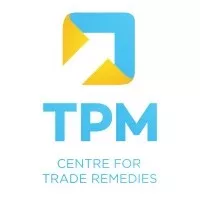- within International Law topic(s)
- in United States
- within Media, Telecoms, IT and Entertainment topic(s)
- in United States
- Circumvention involves avoiding trade remedial measures imposed through a change in pattern of trade, by altering the name / composition / description of the article, exporting it through a different source, or exporting it in an unassembled or unfinished form.
- Provisions concerning anti-circumvention investigations are incorporated under Section 9(1A) and 9A(1A) of the Customs Tariff Act, 1975 and Rules 25 to 28 of both the Anti-Dumping Rules and Countervailing Duty Rules.
- Export of goods in unassembled form is considered to be circumventing the duties, where the value addition involved is less than 35%.
- It would also be examined whether there is absence of economic justification for the change in pattern of trade, and whether such change is undermining the remedial effects of trade remedial measures imposed.
Trade remedial measures are an essential tool to shield domestic industries from unfair trade practices and allow a level playing field for all. Nonetheless, exporters subject to duties are increasingly incentivized to exploit and find a way around these duties in an attempt to circumvent them. In the recent past, many countries including India and U.S. have witnessed multiple instances of circumvention of the imposed duties. While various countries have not specifically identified 'circumvention' within their trade remedial provisions, United States, United Kingdom, European Union, Australia, and India are amongst the few nations which have incorporated distinct legislative provisions in their trade remedial laws leading to stricter scrutiny and ensuring that the protective measures remain effective. The Frontier Economics, in its report for the UK Trade Remedies Authority, has reported in its 2022 edition that China is considered to be the country most frequently engaged in circumvention of duties levied by various authorities including Australia, European Union, and the United States. Persuaded by the hefty duties imposed, Chinese companies often engage in circumvention of duties through transshipments or by involving third countries as intermediate stops for assembling products.
Circumvention of duties
The World Trade Organization has defined the term 'circumvention'1 as "measures adopted by exporters to evade anti-dumping or anti-subsidy measures" in its glossary of terms. Circumvention is a means adopted by exporters with the aim of avoiding duties imposed, by altering the name/ composition/ form of the product subject to levy; or by exporting goods from a different location resulting in change in the country of origin/export or by sending partially assembled products to other countries for final assembly.
Indian Law concerning anti-circumvention investigations
India has integrated specific anti-circumvention measures within its trade laws, by virtue of Sections 9(1A) and 9A(1A) of the Customs Tariff Act, 1975. Rules 25 to 28 have been incorporated into both the Anti-Dumping Rules and Countervailing Duty Rules to provide for detailed procedures to investigate the circumvention of duties. As per Rule 25, circumvention involves a change in the pattern of trade with any country or with individual companies subjected to measures and India. Circumvention may take the following forms:
- Export of articles in unassembled, unfinished, or incomplete form, for assembly, finishing, or completion in India or a third country, provided the value addition is less than 35%. Further, it would be examined whether the operation started or increased after, or just prior to imposition of duties.
- Import of the article after being subject to a process involving alteration of description, name, or composition of the article, even in minor forms. It is irrelevant whether there is a change in the tariff classification of the product.
- Import of the article through a country or exporter not subject to anti-dumping duty.
- Any other manner whereby the anti-dumping duty imposed is rendered ineffective.
Further, the Authority would examine whether there is no economic justification for such change in pattern of trade, other than imposition of duty and the effect of such change is causing injury or undermining the remedial effects of the duty.
Rule 26 provides for detailed procedure for initiation of an anti-circumvention investigation. The Authority may initiate an investigation upon receipt of a written application by or on behalf of the domestic industry or suo moto following the information received from the Commissioner of Customs or any other reliable source. The Authority is obligated to inform the Government of the exporting country before initiating an investigation. Rule 27 states that the Authority may recommend imposition of duties on imports of subject goods found to be circumventing an existing duty. Under these Rules, the Authority may review the need for continued imposition of duty where warranted. Forever, the Authority has been entrusted with distinct powers to impose retrospective duties from the date of initiation in case there is positive evidence of circumvention, after the conducting a thorough investigation.
Past Indian cases
The Authority, Directorate General of Trade Remedies, has conducted several anti-circumvention investigations. These include circumvention through imports of downstream products, such as imports of Jute Sacking Cloth, and recommended anti-circumvention duties on 19th March 2019. The Authority noted that the original duties imposed on imports of Jute Products, including Yarn/Twine, Hessian Fabric, and Sacking Bags, vide notification dated 5th January 2017, were being circumvented by imports of Jute Sacking Cloth through Bangladesh. The subject product was an unfinished and incomplete form which required minimum value addition for conversion into the product under consideration of the original investigation. The Authority determined that the imports have undermined the remedial effects of existing duties and recommended individual margins for cooperating producers.
The Authority has also examined circumvention through transshipment, such as in the case of imports of Saccharin from China, which was being imported through Thailand. After thorough examination and analysis, the Authority observed that there has been a sudden change in pattern of trade from Thailand during the period of investigation. It was observed that imports from Thailand increased significantly post imposition of countervailing duty, prompting the Authority to extend the duties to the imports from Thailand.
An example of a case involving change in description would be that of High Tenacity Polyester Yarn. In this case, anti-dumping duty was imposed on 9th July 2018 on yarns from 1000 to 6000 deniers, and Adhesive Activated Yarns of 1000 deniers. Pursuant to the imposition of duties, the product started being imported in the form of yarns of deniers, which were earlier excluded from the product scope. This resulted in the DGTR conducting an investigation and recommending the extension of duties to Yarns of less than 1000 deniers but more than 840 deniers, Yarns of more than 6000 deniers but less than 7000 deniers, and Adhesive Activated Yarns of more than 1000 deniers but less than 1300 deniers.
Conclusion
Robust anti-circumvention provisions and investigations have become an essential tool for ensuring that any remedy imposed serves its purpose. Apart from undermining the effectiveness of trade remedial measures, circumvention can cause irreparable injury to the domestic industry, which in turn results in large scale unemployment, reduction of industrial productivity, and economic instability for the domestic industry. It can distort market conditions to a great extent, giving an unfair advantage to the foreign producers at the behest of the domestic producers. However, the complexity of global supply chains, technological advancements, economic incentives, enforcement challenges with limited resources, and legal complexities in conducting thorough investigations and enforcing anti-circumvention measures effectively can often make circumvention a challenging hurdle to resolve.
The content of this article is intended to provide a general guide to the subject matter. Specialist advice should be sought about your specific circumstances.



